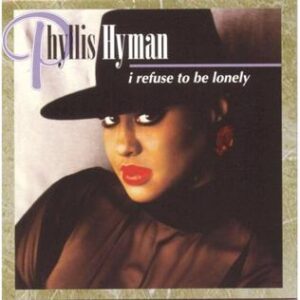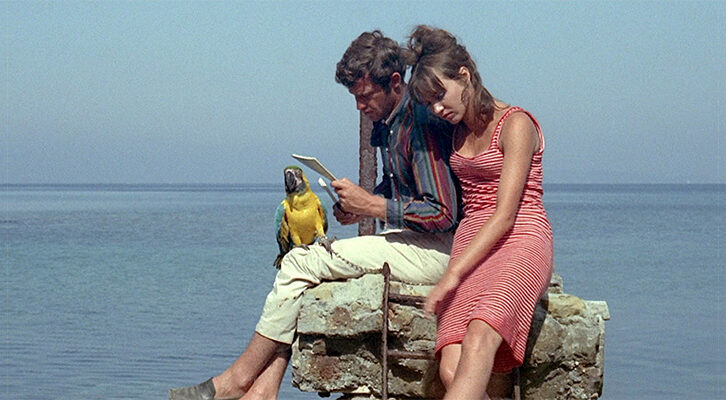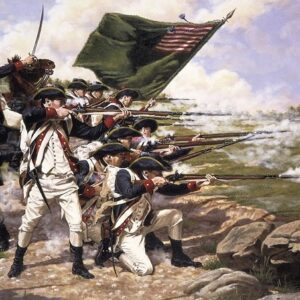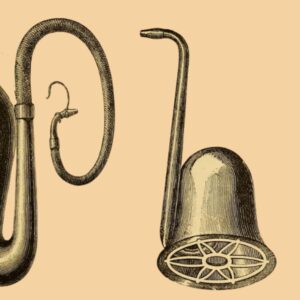
A. O. Scott Asks Himself: What is Criticism?
One of America's Great Critics Has Some Questions—For Himself
Q: What’s the point of criticism? What are critics good for?
A: Those are the big questions! The obvious questions, anyway. But they’re not exactly the same question.
Q: But isn’t criticism just whatever critics do?
A: Sure. And everybody who criticizes is a critic. You see the problem. We’ve barely gotten started and already we’re running in circles. When we talk about criticism, are we talking about a job—a kind of writing, a species of journalism or scholarship, an intellectual discipline of some sort—and therefore the people who make their livings at it? Or are we talking about a less specialized undertaking, something like playing cards or cooking or riding a bicycle, something anyone can learn to do? Or maybe even a more elementary, more reflexive activity, like dreaming or breathing or crying?
Q: I thought the arrangement was that I would be asking the questions here.
A: Sorry.
Q: So let’s start again, and start with you. You are a professional critic, and also someone who thinks a lot about what criticism is and what it’s for.
A: Though not necessarily in that order. And not exclusively, of course.
Q: Okay. But what I’m asking is–
A: What good am I? What’s the point of what I do?
Q: If you want to put it that way. I might not have been quite so hostile.
A: No worries. Opposition is true friendship, as William Blake said. Every critic grows accustomed to dealing with skepticism and suspicion and, sometimes, outright contempt. How dare you! What gives you the right? Why should anyone listen to you? We get this all the time. Provoking people to question our competence, our intelligence, our very right to exist—that seems to be a big part of what it is to be a critic.
Q: And now you’ve decided to fight back. You’re feeling defensive. Would it be accurate to say that you wrote this whole book to settle a score with Samuel L. Jackson?
A: Not exactly. But I’m glad you brought that up. A bit of background: In May 2012, on the day The Avengers—you saw it, right? Everyone did—was released on 3,500 screens across North America, I published a review in which I praised some aspects of the movie—the cleverness of its dialogue, the sharpness of the performances—while complaining about others, in particular its sacrifice of originality on the altar of blockbuster conformity. If you’ll allow me to quote myself: “The secret of ‘The Avengers’ is that it is a snappy little dialogue comedy dressed up as something else, that something else being a giant A.T.M. for Marvel and its new studio overlords, the Walt Disney Company.” That assessment stands up pretty well, if I say so myself. By the time Avengers: Age of Ultron came along a few years later everyone else seemed to be saying more or less the same thing: that its charms and thrills were overwhelmed by soulless corporate spectacle. There is some satisfaction in having been in the vanguard of pointing out the obvious.
At the time, though, I was part of a premature backlash. Not long after my review was posted on the New York Times website, Jackson, who plays Nick Fury in the movie and in other Marvel Universe franchise installments, posted a Twitter message exhorting “#Avengers fans” that “AO Scott needs a new job! Let’s help him find one! One he can ACTUALLY do!” Scores of his followers heeded his call, not by demanding that my editors fire me but, in the best Twitter tradition, by retweeting Jackson’s outburst and adding their own vivid suggestions about what I was qualified to do with myself. The more coherent tweets expressed familiar, you might even say canonical, anticritical sentiments: that I had no capacity for joy; that I wanted to ruin everyone else’s fun; that I was a hater, a square, and a snob; even—and this was kind of a new one—that the nerdy kid in middle school who everybody picked on because he didn’t like comic books had grown up to be me. (In my day, some of the nerdy kids everybody picked on were the ones who did like comic books, but I guess things have changed now that the superheroes and their fanboy followers have taken over everything. I was picked on for reasons that had nothing to do with comic books.)
The Avengers incident blew up into one of those absurd and hyperactive Internet squalls that are now a fixture of our cultural life. Mace Windu had called me out! I had summoned the righteous wrath of Jules Winnfield! Jackson and I were Photoshopped into action-movie combat poses on entertainment websites. Miniature think pieces sprouted like mushrooms after a rainstorm. Our Twitter beef made the news in Brazil, Germany, and Japan. A few of my colleagues embraced the cause of standing up not only for my own beleaguered self, but also for the integrity and importance of the job I was in Jackson’s view unqualified to do.
Q: Were you scared?
A: On the contrary. I was grateful. Neither my person nor my livelihood was in any danger, and The Avengers went on to become the second-fastest film to date to reach $1 billion at the global box office. I gained a few hundred followers on Twitter and became, for a few minutes, both a hissable villain and a make-believe martyr for a noble and much-maligned cause. It was win-win all around, and then everyone moved on.
But even a tempest in a teapot can have meteorological significance, and I think Jackson raised a valid and vital question. Putting aside the merits or limitations of what I wrote about The Avengers or any other movie, it’s always worth asking just what the job of the critic is, and how it might ACTUALLY be done.
Q: So you’ve set out here to defend that job against the attacks—the criticism—of sensitive movie stars and their fans? Isn’t that a little bit hypocritical? It seems like you can dish it out, but you can’t take it.
A: Well, no, actually. I mean, yes, we all get a little sensitive when the people whose work we write about—or for that matter our readers—find fault with what we do. That’s only human. What I’m more interested in here is the general tendency—I would really say the universal capacity of our species—to find fault. And also to bestow praise. To judge. That’s the bedrock of criticism. How do we know, or think we know, what’s good or bad, what’s worth attacking or defending or telling our friends about? How do we assess the success or failure of The Avengers or anything else? Because whether or not it’s our job, we do judge. We can’t help it.
Q: And how do we judge? Or maybe the question is “Why do we judge?”
A: Honestly, when I set out to write this book I thought the answers would come much more easily than they did. That there would in fact be answers of a kind I could state clearly and emphatically. Maybe I’d discover that we know what’s beautiful or meaningful or even just fun because of neural switches or hormonal responses that evolved at the dawn of human time in order to help us avoid predators and produce more offspring. Or maybe I’d conclude that we are able to make determinations and discriminations of value because we have access to innate and eternal standards that, though they mutate over the centuries and express themselves differently from place to place, nonetheless keep us on the path of truth and beauty.
You can look at the history of human creativity and find patterns—shapes, sounds, stories—that suggest deep continuity. You can also survey the wild diversity of human making and conclude that no single category or set of criteria could possibly contain it all. Every culture, every class and tribe and coterie, every period in history has developed its own canons of craft and invention. Our modern, cosmopolitan sensibilities graze among the objects they have left behind, sampling and comparing and carrying out the pleasant work of sorting and assimilating what we find. Meanwhile, we are inundated with new stuff, which is also pleasant even if the glut can leave us feeling paralyzed and empty. We marvel at the abundance or worry about the too-muchness of it all. There are so many demands on our attention, so many offers of diversion and enlightenment on the table, that choosing among them can feel like serious work.
Q: And that work—the winnowing and contrasting, the measuring and interpreting—is what you call criticism.
A: Yes. But it’s also something more basic and more urgent. It’s complicated. Let me go back to Samuel L. Jackson. Six months after the Avengers episode, he revisited our Twitter quarrel in an interview with the Huffington Post and gave voice to a widespread complaint about criticism in general, and about the criticism of popular culture in particular. “Ninety-nine percent of the people in the world look at that movie as what it is,” he said. “It’s not an intellectual exposition that you have to intellectualize in any way.” This is an old and powerful—in some ways an unanswerable—argument against criticism, rooted in the ideas that creative work should be taken on its own terms and that thought is the enemy of experience. And it is indeed precisely the job of the critic to disagree, to refuse to look at anything simply as what it is, to insist on subjecting it to intellectual scrutiny.
“Intellectualize” is a deliberately ugly word, the use of which is an accusation in its own right. But really it’s just a synonym for “think,” and it’s worth asking why it should be necessary to deny so strenuously that The Avengers might be both the product and a potential object of thought. The movie is very much an “intellectual exposition” in the general sense of having arisen from the conscious intentions and active intelligence of its creators, including Jackson himself. It also, like many other comic-book entertainments, sets out to explore what fans of the genre and veterans of high school English would be sure to recognize as Big Themes, among them honor, friendship, revenge, and the problem of evil in a lawful universe. And finally (and, from my own perspective, most vexingly), The Avengers shows what can happen when a playful storytelling instinct collides with the imperative of global profit that drives so much twenty-first-century Hollywood production.
All of which is to say that The Avengers is an extremely interesting and complex artifact, and that its successes and limitations are worth puzzling over. And yet even to contemplate the work of teasing out the good from the bad, finding the context and staking a claim, might be to miss the point. Or, as Jackson put it: “…if you say something that’s fucked-up about a piece of bullshit pop culture that really is good—‘The Avengers’ is a fucking great movie; Joss [Whedon] did an awesome job—if you don’t get it, then just say, ‘I don’t get it.’”
But I get it. In particular, I appreciate the double standard that Jackson invokes as he places The Avengers simultaneously beneath criticism (“a piece of bullshit pop culture”) and beyond it (“a fucking great movie”). He is echoing the reflexive disdain for movies and other low- and middlebrow amusements that came so easily to intellectuals of an earlier era, and at the same time invoking the ancient, superhighbrow idea that a work of art is inviolate and sufficient unto itself. In these circumstances, a critic will be guilty of foolishly taking seriously what was only ever meant as harmless, easy fun, or else of dragging something sublime down to his own ridiculous level. But guilty either way.
Here’s the important thing, though: in doing this, a critic will be no different from anyone else who stops to think about the experience of watching The Avengers (or reading a novel or beholding a painting or listening to a piece of music). Because that thinking is where criticism begins. We’re all guilty of it. Or at least we should be.
Q: So you’ve written a book in defense of thinking? Where’s the argument? Nobody is really against thinking.
A: Are you serious? Anti-intellectualism is virtually our civic religion. “Critical thinking” may be a ubiquitous educational slogan—a vaguely defined skill we hope our children pick up on the way to adulthood—but the rewards for not using your intelligence are immediate and abundant.
As consumers of culture, we are lulled into passivity or, at best, prodded toward a state of pseudo-semi-self-awareness, encouraged toward either the defensive group identity of fanhood or a shallow, half-ironic eclecticism. Meanwhile, as citizens of the political commonwealth, we are conscripted into a polarized climate of ideological belligerence in which bluster too often substitutes for argument.
There is no room for doubt and little time for reflection as we find ourselves buffeted by a barrage of sensations and a flood of opinion. We can fantasize about slowing down or opting out, but ultimately we must learn to live in the world as we find it and to see it as clearly as we can. This is no simple task. It is easier to seek out the comforts of groupthink, prejudice, and ignorance. Resisting those temptations requires vigilance, discipline, and curiosity.
Q: So then what you’ve written is a manifesto against laziness and stupidity?
A: You could put it that way. But why cast it in such a negative light? This book is also, I hope, a celebration of art and imagination, an examination of our inborn drive to cultivate delight and of the various ways we refine that impulse.
Q: And all that is the critic’s job?
A: It’s everyone’s job, and I believe it’s a job we can actually do. I suggest that the effort might begin with the way we address the works that answer our bottomless hunger for meaning and pleasure, and also, simultaneously, with the way we understand our responses to those beautiful, baffling things.
We are far too inclined to regard art as an ornament and to perceive taste as a fixed, narrow track along which each one of us travels, alone or in select, likeminded company. Alternatively, we seek to subordinate the creative, pleasurable aspects of our lives to supposedly more consequential matters, pushing the aesthetic dimensions of existence into the boxes that hold our religious beliefs, political dogmas, or moral assumptions. We trivialize art. We venerate nonsense. We can’t see past our own bullshit.
Enough of that! It’s the job of art to free our minds, and the task of criticism to figure out what to do with that freedom. That everyone is a critic means, or should mean, that we are each of us capable of thinking against our own prejudices, of balancing skepticism with open-mindedness, of sharpening our dulled and glutted senses and battling the intellectual inertia that surrounds us. We need to put our remarkable minds to use and to pay our own experience the honor of taking it seriously.
Q: Okay, fine. But how?
A: Good question!
From BETTER LIVING THROUGH CRITICISM. Reprinted by arrangement with Penguin Press, a member of Penguin Group (USA) LLC, A Penguin Random House Company. Copyright © 2016 by Anthony O. Scott.
A. O. Scott
A. O. Scott joined The New York Times as a film critic in January 2000. Previously, Mr. Scott was a Sunday book reviewer for Newsday and a frequent contributor to Slate, The New York Review of Books, and many other publications. He has served on the editorial staffs of Lingua Franca and The New York Review of Books. In addition to his film-reviewing duties, Mr. Scott often writes for the Times Magazine and the Book Review. He lives with his family in Brooklyn, N.Y.



















